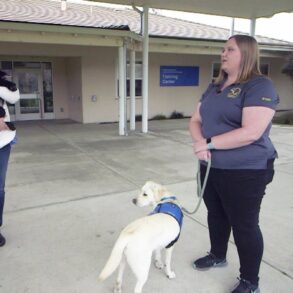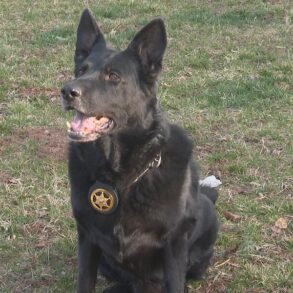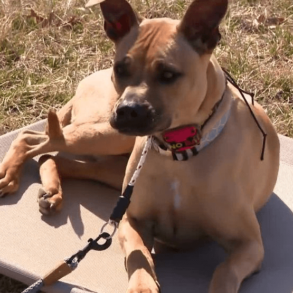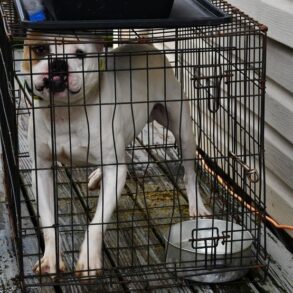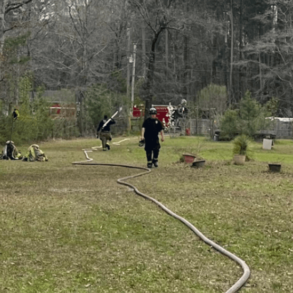A vet has revealed the signs your dog might be suffering from depression.
In the past two weeks alone, a spike in online searches for ‘depression in dogs’ has surged by 62 per cent.
Dr Anna Foreman, in-house vet at Everypaw Pet Insurance, has suggested that the increase is linked to the post-holiday slump, as families return to work and school.
She said: ‘This increase in contact with their owners over Christmas, followed by a sharp change in January back to normal may drive depression.’
In light of this, Dr Anna has outlined the key warning signs for pet owners and shared tips on how to lift your dog’s spirit during the long winter months.
The expert explained how pets can experience depression in the winter due to shorter days, colder weather, and less exercise.
The decrease in outdoor activity and sunlight may cause them to become lethargic or lose interest in food and play.
Equally, some dogs who do not experience a drop in appetite levels may then gain weight and so be less active, which can contribute to depression.

Dr Anna said: ‘Like humans suffering from seasonal affective disorder (SAD), dogs can become depressed over the winter months.
‘It has not been proven that the same sunlight-affected mechanism occurs in dogs as it does in humans, however dogs are often more lethargic, quiet and have a decreased appetite over the winter months.’
What are the signs owners should look out for that a dog may be depressed?
Dr Anna advised owners to look out for changes in their dogs’ behaviour over the colder months, such as lethargy, loss of appetite or weight fluctuations.
Unusual behaviours should be equally acknowledged, such as chewing on furniture, urinating or defecating in the house or eating things they shouldn’t.
Dr Anna advised: ‘Any of these signs can be linked with underlying medical problems as well as being related to depression, and so if seen, should be discussed with your vet.’
How can owners keep their dog happy this winter?
To keep your dog happy during winter, maintain a consistent routine, and ensure they get enough exercise and light, and adjust their meals based on activity levels.
Schedule regular walks during the day to ensure your dog is getting as much light exposure as possible.

Much like with humans, exercise also aids anxiety and depression.
If your dog acts out, it’s important to use positive reinforcement instead of punishment to prevent confusion.
Dr Anna added: ‘Scolding a dog for acting out does not ‘punish’ them as such, as they do not associate the two events.
‘Rather praising them for positive behaviour is more likely to be effective at reducing negative behaviours.’
She continued: ‘When going back to work or school, schedule time in your day for your dog to prevent boredom and depression. Playing, walking or simply cuddling on the sofa will help your dog with the transition.’
Which dogs are more at risk to depression?
Older dogs, those with a history of behavioural issues, and rescue dogs who may have experienced trauma are more likely to develop depression, especially during the colder months when routines change.
Dr Anna said: ‘Dogs who have previously been abandoned, or had some sort of other traumatic event occur, are also more prone to depression – rescue dogs for example may have been through these situations.’
Meanwhile, older dogs are likely to be prone to depression as they become less mobile and more dependent on their owners – so it’s important to factor this in when returning to work and school as the holidays draw to a close.
This post was originally published on this site be sure to check out more of their content.






